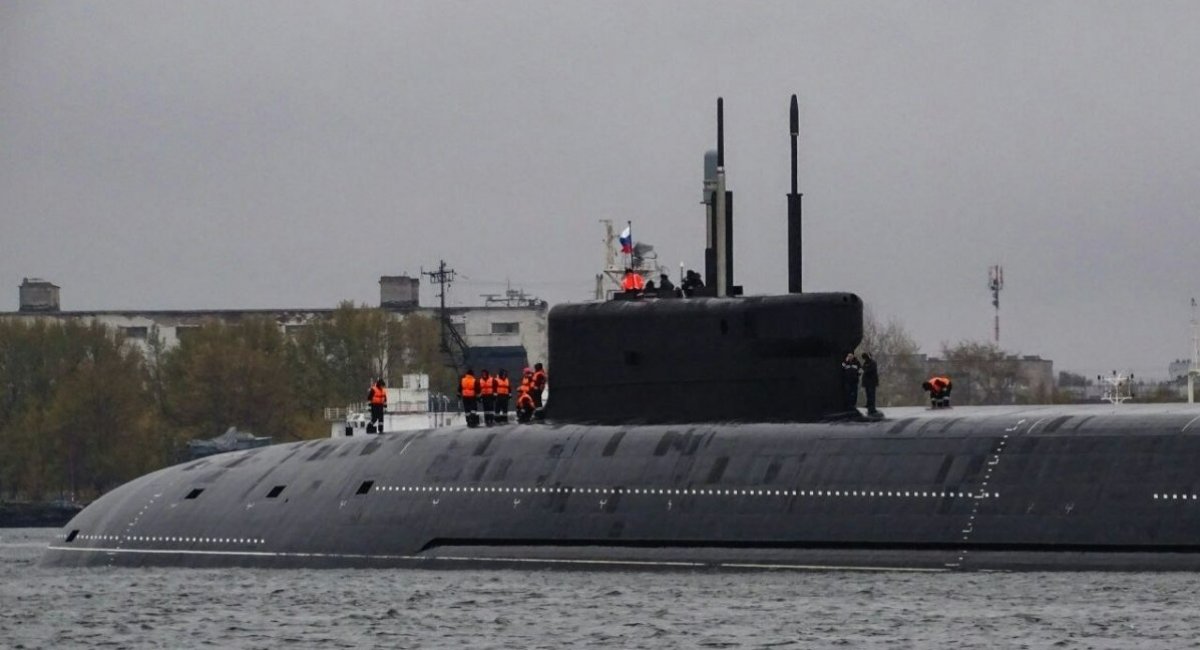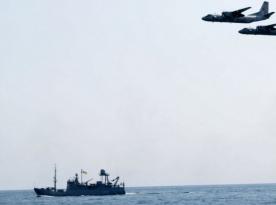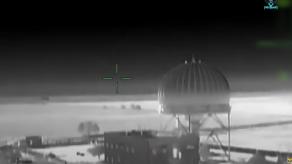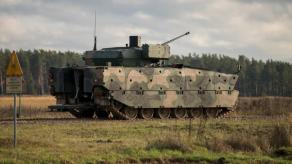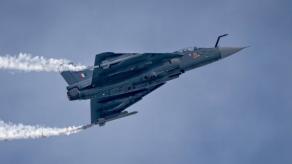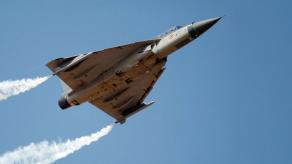Thursday, July 24, 2025, russia officially commissioned its new Project 955A Borey-A nuclear submarine, K-555 Prince Dmitry Pozharsky, into the navy.
The ceremony was held at the Sevmash shipbuilding plant in northern russia, where the submarine was built. Notably, the event was attended in person by Vladimir Putin, marking a departure from his recent practice of joining such events virtually, as pointed out by Naval News.
Read more: russia's Largest Submarine Measures 184 Meters, but They Are Already Discussing 360-Meter Nuclear Gas-Carrying Subs
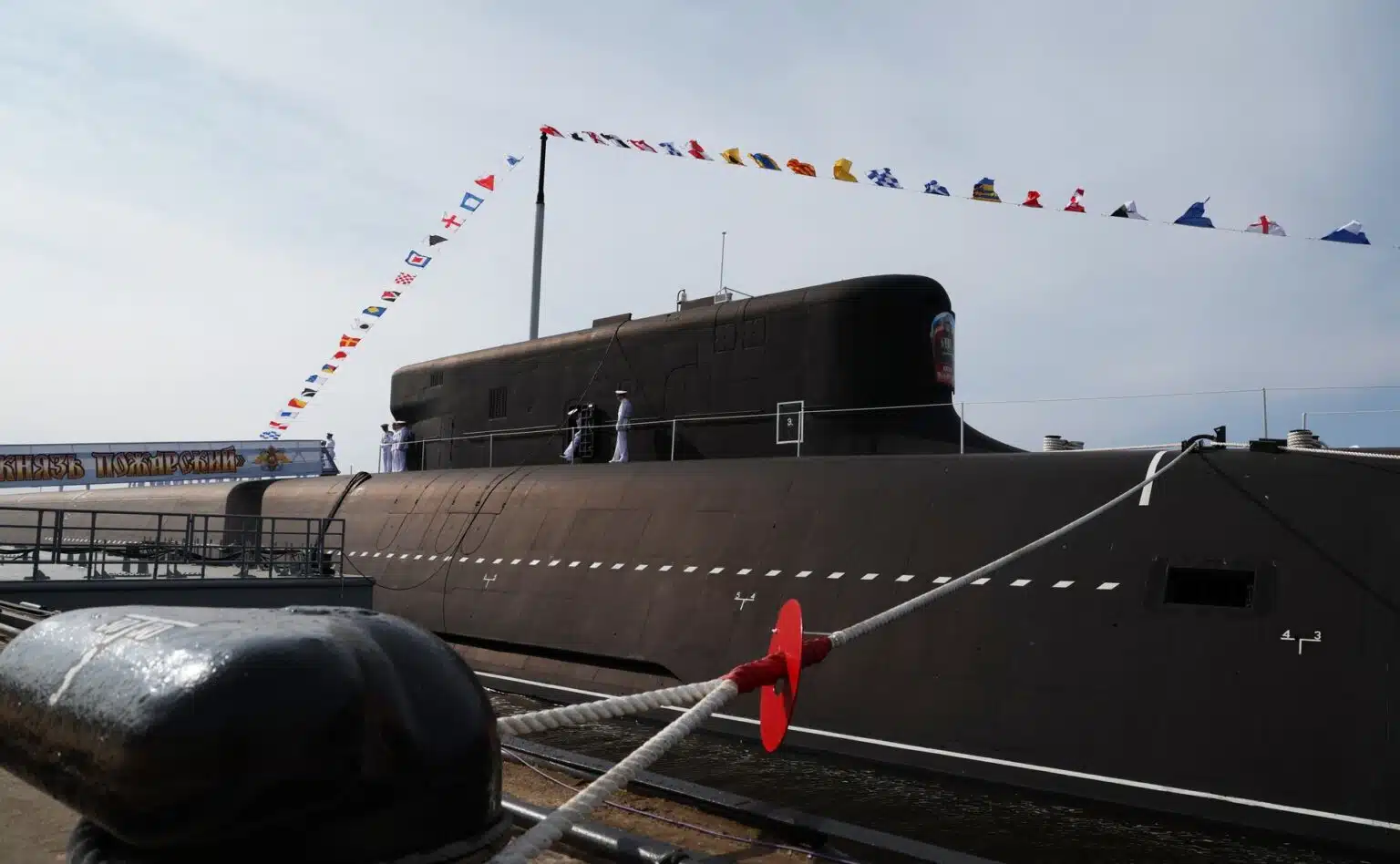
Defense Express notes that this is not just another routine milestone for the russian military-industrial complex but a marker of a broader strategic trend: bolstering russia’s capacity to maintain its posture of a nuclear threat against NATO.
The submarines of Projects 955 Borey and 955A Borey-A are intended to replace the aging Project 667 Delfin SSBNs, which currently form the backbone of the sea-based component of russia’s nuclear triad.
According to The Military Balance 2024, issued by the International Institute for Strategic Studies, at the start of 2024 russia operated six Borey-class subs (Projects 955/955A) and six Delfin boats, each armed with 16 ICBMs — the R-30 Bulava and R-27, respectively. The Kremlin’s plan envisions building eight Borey-class submarines in total, phasing out the Delfin fleet.
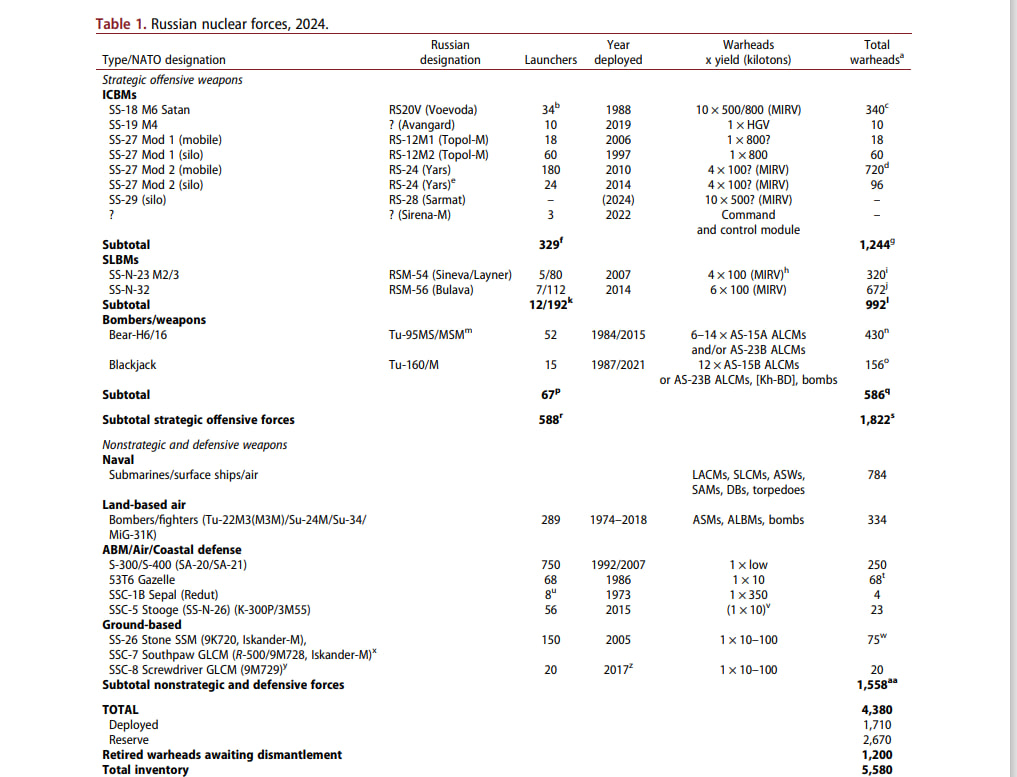
If fully implemented, this would reduce russia’s total SLBM loadout from 192 to 128 missiles. Yet it would also give Moscow a fleet of modern carriers of nukes, capable of remaining operational for 20 years or more, thus sustaining its sea-based nuclear strike capability as a tool of deterrence and blackmail well into the future.
This renewal has direct implications for Ukraine as well. The Kremlin’s nuclear threats have previously influenced the timing and scope of Western military aid, and maintaining a modernized SSBN fleet will only reinforce this factor.
For reference, the Project 955A Borey-A (NATO name: Dolgorukiy) submarines measure 170 meters in length, displace 24,000 tons submerged, carry a crew of 107, and are armed with 16 silos for D-30 Bulava ICBMs along with six 533 mm torpedo tubes.
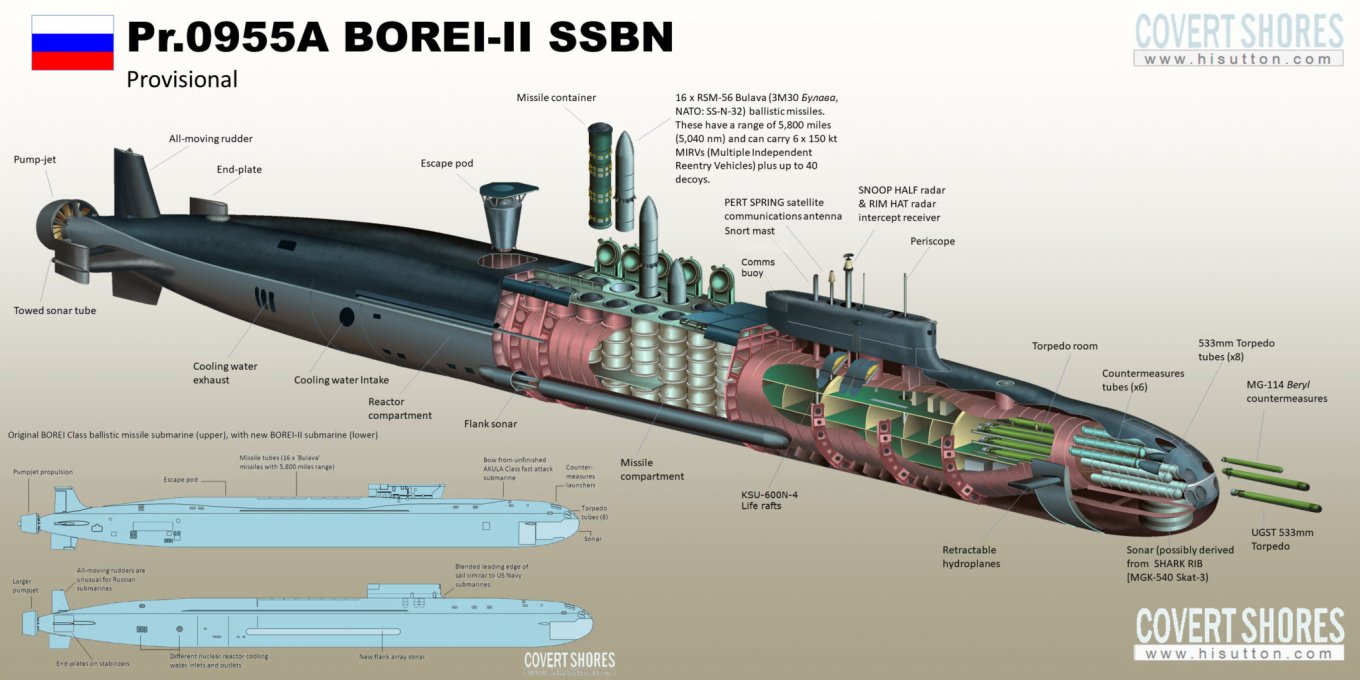
Read more: Defunct Kuznetsov Carrier Considered for Sale Instead of Scrapping: Who Might Buy



